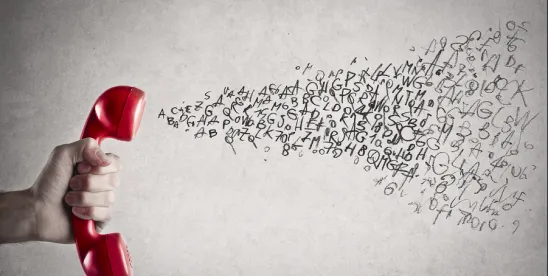The Federal Communications Commission (FCC) has proposed rules to implement a provision in the Bipartisan Budget Act of 2015 (Budget Act) that allows robocalls (i.e., calls made with an automatic telephone dialing system or calls with an artificial or prerecorded voice) to be used for the purpose of collecting a debt owed to or guaranteed by the United States. Specifically, as part of the Budget Act, Congress amended the Telephone Consumer Protection Act (TCPA) (codified at 47 USC § 227) to include calls made “solely to collect a debt owed to or guaranteed by the United States” as an exception to the requirement that a caller obtain prior express consent from the called party before placing any type of robocall to a wireless telephone number or placing a call containing an artificial or prerecorded voice to a residential (wireline) telephone number. (Note that even prior to the Budget Act’s amendment of the TCPA, FCC rules allowed artificial or prerecorded voice calls to be placed to residential telephone numbers if such calls were not made for a commercial purpose. The FCC has previously determined that debt collection calls are not initiated for a commercial purpose. Therefore, debt collection robocalls (whether or not the debt is owed to or guaranteed by the United States) to residential telephone numbers are permitted under the current FCC rules.)
The Budget Act directed the FCC to prescribe regulations to implement the TCPA amendments regarding United States government debt collection and authorized the FCC to limit the number and duration of the debt collection robocalls made to wireless telephone numbers. The FCC has requested comments on several issues, including: (1) the types of calls that are “solely to collect a debt” and are “owed to or guaranteed by the United States” (referenced as “covered calls”); (2) the persons to whom covered calls may be made; (3) who may initiate covered calls; and (4) limits on the number and duration of covered calls placed to a wireless telephone number.
The FCC has proposed the following rules governing the use of robocalls related to debts owed to or guaranteed by the United States:
-
Calls “solely to collect a debt” would mean calls made to obtain payment after a borrower is delinquent on a payment. Covered calls would not include calls initiated as part of a debtor’s use of skip tracing to locate a debtor.
-
Debt servicing calls initiated by the creditor and entities acting on behalf of the creditor would be considered covered calls. Debt servicing calls could include calls that provide information about how to reduce payments, restructure loans, or change payment dates.
-
Covered calls could only be made to the person obligated to pay the debt.
-
Covered calls could be made by creditors and those acting on their behalf.
-
Covered calls would be limited to three call attempts per month, per delinquency. This limitation would include calls that are initiated, but unanswered.
-
Consumers would have the right to stop covered calls at any time and callers would have to inform consumers of their right to make such a request.
Comments on the FCC’s proposed rules are due June 6, 2016 and reply comments are due June 21, 2016. It is expected that consumer groups will support the FCC’s proposed limitations on the debt collection robocalls for debts owed to or guaranteed by the United States, such as only allowing robocalls when payments are delinquent, limiting the number of calls to three per month, and giving consumers the right to stop the calls. Entities that collect debts owed to or guaranteed by the federal government, such as student loans and certain mortgages, will likely oppose the FCC’s proposed rules as going beyond the scope of the Budget Act’s amendments to the TCPA. For example, the TCPA amendments do not explicitly authorize the FCC to implement rules that would allow consumers to request callers to stop making debt collection robocalls that are otherwise allowed under the TCPA.




 />i
/>i
